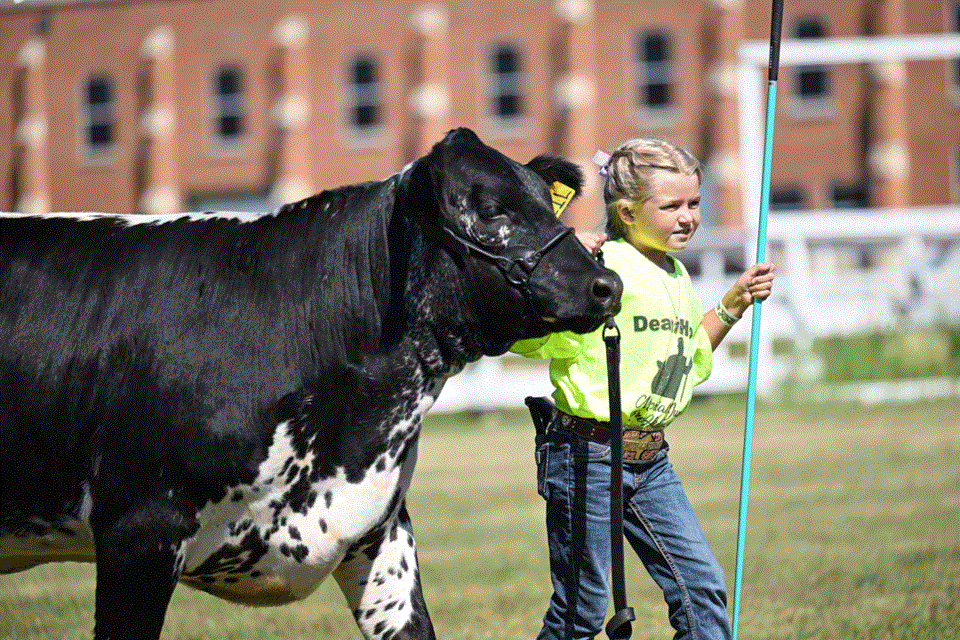REDVERS - Extreme Speckle Park farm is located five kilometres southeast of Redvers and they raise registered speckle park cattle.
Tammy and Donald Buisse run the farm with their daughter Katrina Lynch, along with her husband Bryan Lynch and three children Jaylynn, who is eight years old, Dawson, 5, and Kacey, 3.
Buisse said her husband Donald has lived on the farm his entire life. They have a mixed farm with grain, hay and around 70 head of cattle.
Speckle park cattle were developed in Saskatchewan in 1959. It is a cross-breed stock of the British Aberdeen Angus and Teeswater Shorthorn breeds. The spotted or speckled pattern for which it is named derived from a single bull with the colour-pointed markings of the British White Park.
Their development took place along the Yellowhead Highway between Spruce Grove, Alta., and North Battleford. A monument is located along the Yellowhead near Maidstone, which pays tribute to the Lamonts for their role in starting the Speckle Park breed.
Speckle park are only the second breed in Canada to be granted distinct breed status and The Speckle Park Breeders' Association was formed in 1985. It was renamed the Canadian Speckle Park Association.
The name came from the speckle pattern they display, and park comes from the white body with coloured points about the ears, eyes, muzzle, lower legs, and teats.
Whether a farm has one or a hundred head, they are still called a speckle park, as in the singular term.
According to Buisse, the breed has an easy time at birthing, low calf birth weights and great meat quality. They have high fertility rate and milk production and are very hardy with an elevated weight gain.
The cattle have fine skin and hair in the summer and in the winter coat up nicely for Saskatchewan winters. The breed is also very gentle and docile, and easy to handle.
Having a few park bulls they used for breeding, they had the opportunity to purchase an entire herd of parks and so they did, from Bellmoral Farms at Dubuc. Today they only have registered stock on their farm.
The cattle are also shown, which is Bryan and Katrina’s department. They halter break the animal and show them, with their eight-year-old daughter Jaylynn also participating. Jaylynn joined the Alida and Beef 4-H club when she was six years old, and shortly after took on a calf named Lady’s Bird 21L.
Today the calf is now a two-year-old heifer that stands the same height as young Jaylynn, but this does not scare her at all. She has taken this heifer to many shows and done very well. Jaylynn went to regionals in Alameda, where she won the showmanship and judging classes and reserve championship for the cloverbuds. Jaylynn took home two belt buckles, three banners and a new chair.
“Jaylynn has attended Yorkton, Brandon, Alameda, Harding, Prince Albert, Weyburn and Regina spring Fling,” said Buisse, “And she does very well and is a natural with handling the heifer.”
Buisse could not say if the speckle parks are easier to train as they have never trained another breed.
Although the majority of shows have other breeds that they compete against, a few select shows will be breed-specific for the speckle parks.
Jaylynn’s younger sibling Dawson is eager to start showing as well, but he has another year to wait, as he has to be six years old to join 4-H.
In the meantime, the show heifer has been bred and will have her first calf in the spring, which Jaylynn is waiting for. Maybe this calf will be her next show project.




